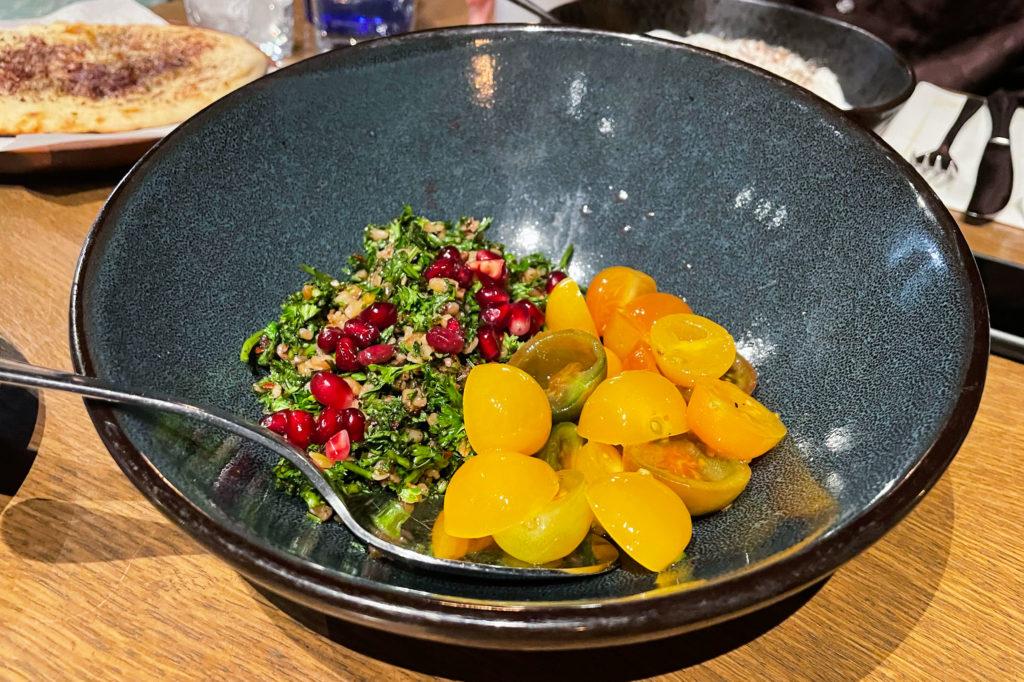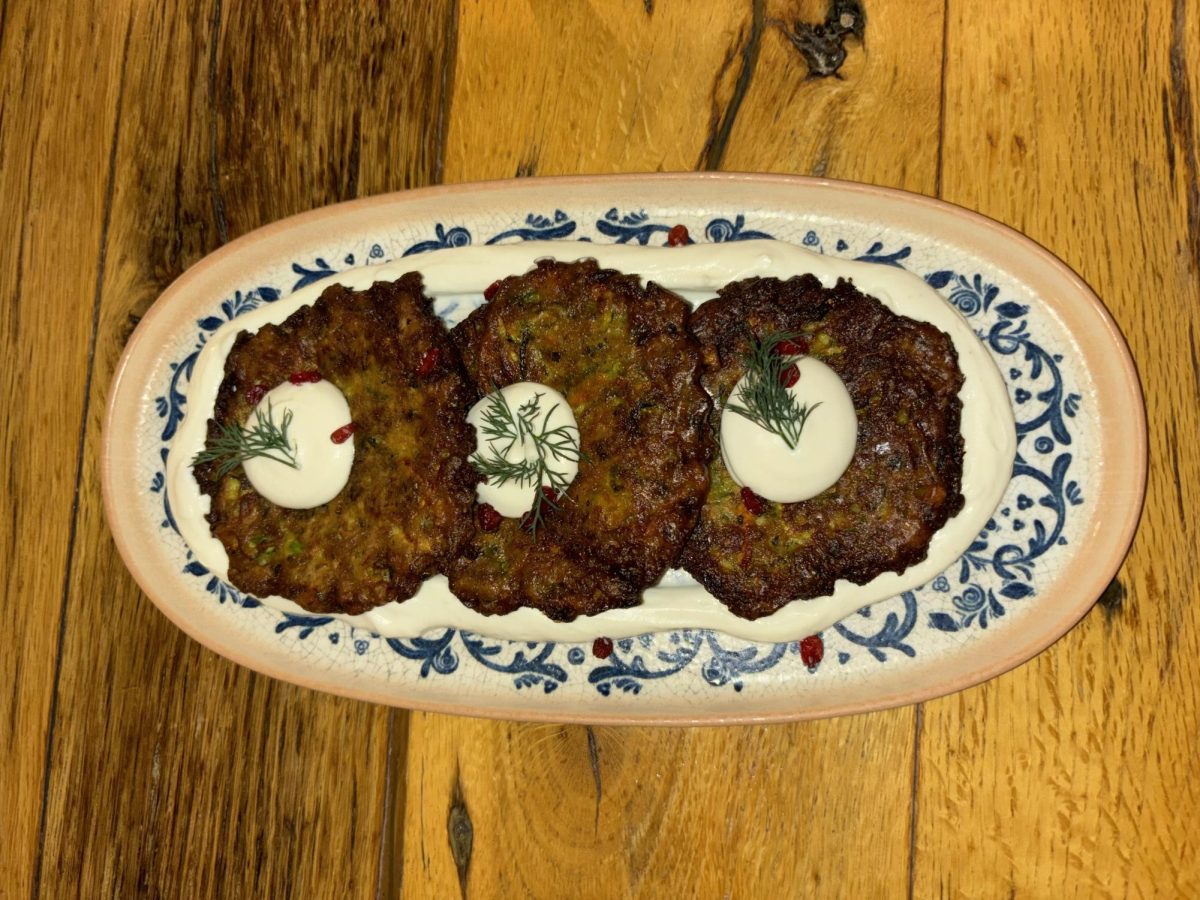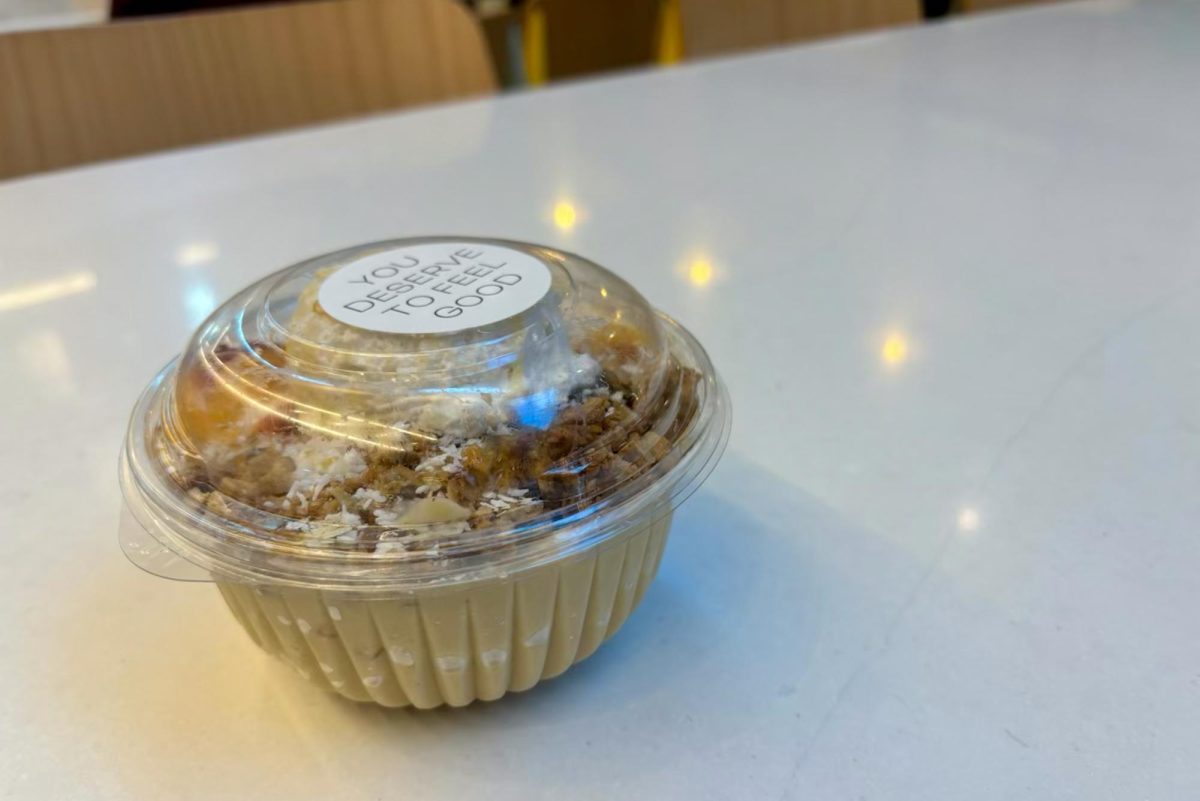Among the lively clubs and restaurants lining the streets around Dupont Circle lies ala, a serene Levantine tapas restaurant offering an escape from the commotion of the city.
Ala’s upscale fine dining environment is a 15-minute walk from campus, located at 1320 19th St. NW. I chose the restaurant to taste distinctive dishes from Mediterranean cultures I had yet to fully experience, and ala welcomed my exploratory outlook.
Diners can choose to enjoy their meals either in either of the restaurant’s two stories, and outdoor seating is offered in the warmer months. I was seated in the first floor dining room, which held no more than five tables and two booths, providing an intimate feel.
The modern furniture, abstract artwork and light wood tables gave the dining area a chic yet homey vibe. A stone wall adorned with green vines and a few tree branches extending from the wall up to the ceiling brought an elegant, outdoorsy feel into the interior.
I came ready to order from a variety of dishes off the diverse menu featuring spreads to large plates to desserts. In addition to lunch and dinner, ala also offers a bottomless brunch menu on the weekends and a “coffee+more” menu during weekday mornings and afternoons for study groups, work meetings and breakfast.
I skipped ordering a drink this time, but the restaurant vends Levantine-inspired cocktails and other alcoholic drinks from around the Mediterranean region. Try raki, the national drink of Turkey made from grapes and anise, or choose from a variety of sweet, home-infused wines like the cleopatra, a red wine infused with rose and watermelon ($10).
I started off my meal with the labneh ($10), a cold spread with a slightly tart, yogurt-like consistency and taste, topped with spices like za’atar, a popular blend of herbs in the Middle East. Since no Middle Eastern dish is complete without a portion of baked bread, the labneh came with spicy taboon, a Levantine bread, which was also topped with a mixture of spices.
The cool, slightly sour labneh complimented the warm, soft taboon to make for a simple yet intriguing appetizer. But the freekeh tabbouleh ($12) was the ultimate addition to the meal.
Served in a muted blue ceramic bowl, the striking colors of the dish immediately captivated my eye. Bright but deep red pomegranate seeds topped a mix of parsley, strips of fresh mint and freekeh, a grain derived from North African and Levantine cuisines. Beside the superfood mixture rested an ample serving of golden-yellow heirloom tomatoes, adding to the colorful vibrancy of the dish.
The hearty freekeh combined with the vividly luminous flavor of the greens, tomatoes and pomegranate offered a crisp bite of healthy, plant-based ingredients. As a college student who sometimes neglects their nutritional needs for days straight, the freekeh tabbouleh provided an ardent freshness that my body and taste buds certainly leapt for.
As spoonful after spoonful disappeared, left behind was a shallow blend of juices from the produce, adding an even more intense flavor to the remnants of the dish.
Ala spoke to cravings even I didn’t know I had, leaving me satisfied, yet eager to mark my calendar for the next date to return.








